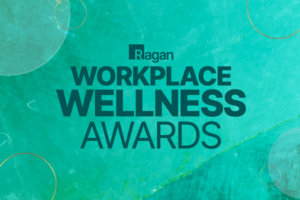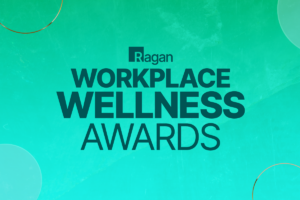What communicators need to know about mental health accommodations
Whether you need help guiding a team member or employee or you need help yourself, here’s the details.

Over the past two years, the conversation about mental health has changed. In many ways this is positive, recognizing that nearly all people go through stretches that challenge their mental wellness including increased anxiety, stress, depression or burnout. Understanding these often-temporary difficulties is crucial in building an empathetic, wellness-focused workplace.
This Mental Health Awareness Month, we should also remember those with diagnosed mental illnesses that aren’t temporary. Even when well-controlled with medication, therapy or other treatments, those who live with bipolar disorder, schizophrenia, obsessive compulsive disorder and a host of other mental illnesses can require – and are entitled to – reasonable accommodations in the workplace.
These accommodations often go beyond telling someone to take advantage of an EAP or to take a bonus wellness day for self-care. They can require changes to workplaces, workflows and more. But it’s more than just the law: it’s the right thing to do for people who deserve a chance to succeed like anyone.
Comms pros have a vital role to play in this arena. Our skills in empathy, clear expression and explaining difficult concepts simply can assist both affected employees and those around them in understanding their rights and responsibilities.
Accommodations under the Americans with Disabilities Act are complex. To communicate the best, most accurate information, you’ll want to consult your HR department and craft messaging based off their recommendations. But this article can serve as a primer for comms pros who want to talk about the totality of mental health and supporting workers on their team who need to work a little differently to succeed.
What are reasonable accommodations?
Reasonable accommodations “enable an individual with a disability to have an equal opportunity not only to get a job, but successfully perform their job tasks to the same extent as people without disabilities,” according to the U.S. Department of Labor.
That’s important to remember. These aren’t perks or special treatment. They’re changes designed to even the playing field.
You may be more familiar with reasonable accommodations for physical disabilities — making sure a wheelchair user has a ramp, for instance, or making sure a visually impaired person has a screen reader. But many mental illnesses are considered disabilities, too.
If a team member comes to you asking for an accommodation, listen. Get clarity around what accommodations are being requested. You don’t need to make promises or say yes or no then and there – just make it clear that you’ve heard them, you take their request seriously and you’ll discuss it with the appropriate party, whether that’s your supervisor or HR.
Follow up. Be kind.
What kinds of accommodations might a person with mental illness need?
The Job Accommodation Network is a tremendous resource for understanding what kinds of accommodations a person with a wide variety of disabilities might benefit from. Here are just a few accommodations they say may be useful for folks with different types of mental illness:
- A support person or animal
- Written instructions and feedback rather than verbal
- Ability to work from home or with a flexible schedule
- Noise canceling headphones or a white noise machine
- Apps to help manage stress, anger, anxiety or other emotional issues
- Uninterrupted time to work
- Additional breaks, a modified break schedule, or a private rest area
- Assistance with calendars or organizers
- Lights that simulate sunlight in the workspace
- Changing supervisory styles to meet more or less often, or to modify how feedback is given
- Mentoring
- Time off for medical or therapy appointments
These are just a few common ideas. There is no one right way to do accommodations. Ultimately it’s about what works best for both the person and the job duties.
When in doubt, the simplest questions to ask are: What do you need help with? What struggles are you facing right now?
Your expertise in comms can set you up to help those requiring accommodations to succeed. Offering written feedback? No sweat, most communicators are writers. Understanding diverse learning styles? Already something we consider every day. Offering empathy and understanding? Part of the gig.
What if you need accommodations?
Accommodations aren’t just something to help others with – they’re something you may benefit from too. And all employers are bound by the ADA – with the exception of organizations with 15 or fewer employees.
Again, JAN has a huge variety of resources to help you talk to your employer about this issue, including form letters you can send to your workplace. They also offer free consulting for all employees to help decide what kinds of accommodations you may benefit from.
As communications pros, we’re used to speaking up about the needs of those around us. We’re advocates and educators for everyone else. But we deserve to show up for ourselves, too. Use your voice and your skills to get the help you deserve.
You should know that there are no magic words you have to use to ask for a reasonable accommodation – you don’t even have to use the words “reasonable accommodation.” You can make the request verbally or in writing. However, as in most cases, a paper trail can be helpful.
You also don’t necessarily have to disclose what your disability is – just that it’s related to a disability. However, an employer does have the right to ask for medical documentation that you have a disability, and you must provide it if asked.
Finally, keep in mind that accommodations must be reasonable. You must still be able to perform the core tasks of your job with accommodations. You and your employer can work together to figure out a set of accommodations that works best.
Rather than looking at accommodations as an inconvenience, we should all view them as a way to help our teams and ourselves embrace diversity and empower teammates to be productive and supported through all the challenges they face.







